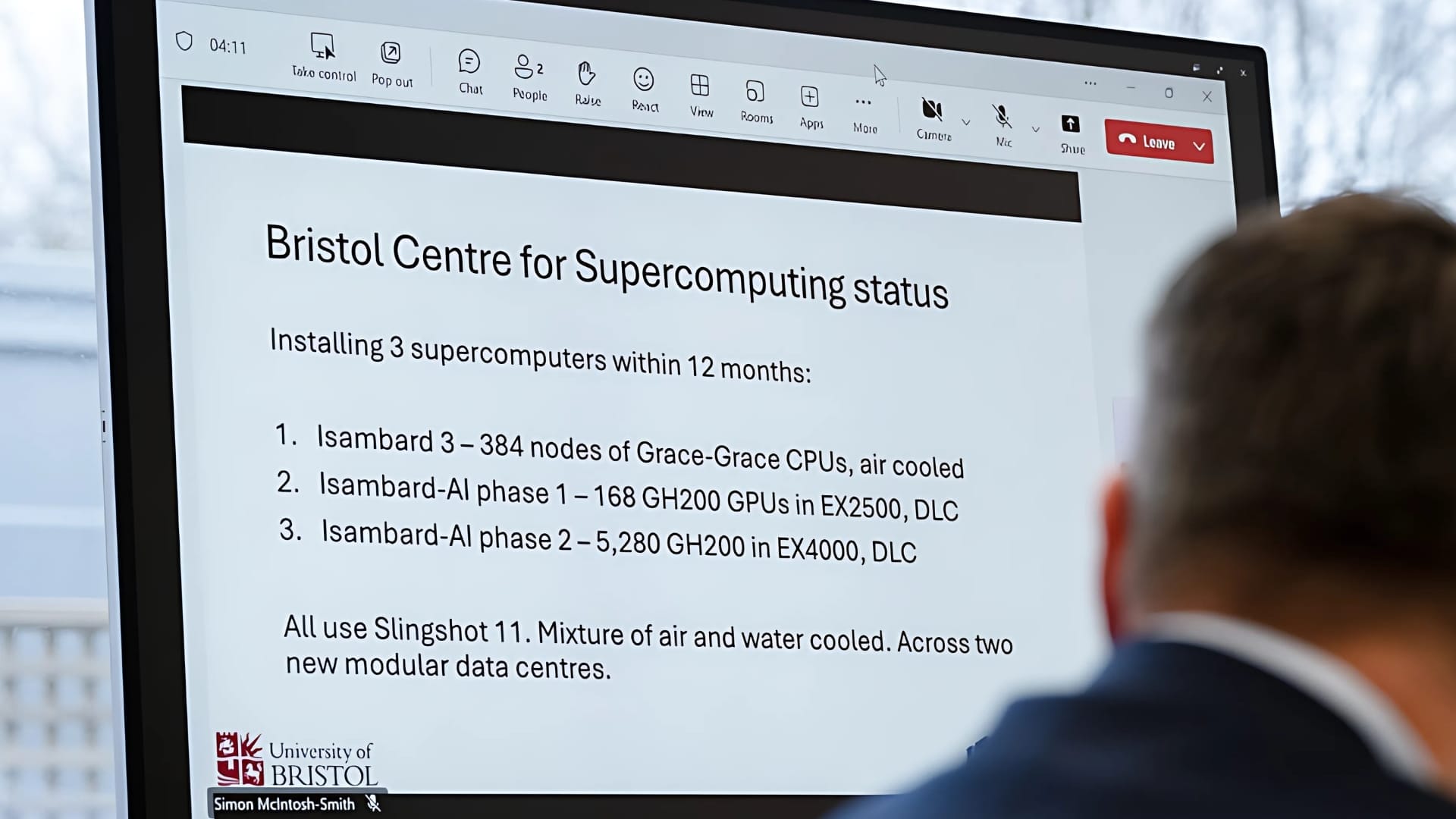Isambard-AI becomes UK’s most powerful AI supercomputer
The UK launches Isambard-AI, its fastest AI supercomputer, to accelerate national research, powered by NVIDIA and government funding.

The UK’s ambitions in artificial intelligence have taken a major step forward with the launch of Isambard-AI, now the most powerful AI supercomputer in the country. Based at the Bristol Centre for Supercomputing (BriCS) and powered by NVIDIA Grace Hopper Superchips, the system delivers 21 exaflops of AI performance. This makes it not only the fastest in the UK but also one of the most energy-efficient globally.
Table Of Content
A major leap for AI infrastructure
The launch ceremony was held at BriCS, with UK Secretary of State Peter Kyle activating the system alongside academic and industry leaders including Simon McIntosh-Smith, director of BriCS, and Neil MacDonald, executive vice president and general manager of Hewlett Packard Enterprise’s server division.
“And as we press this switch to activate the UK’s most powerful supercomputer, we are embarking on Britain’s super future where AI contributes towards the delivery of better public services, greater public prosperity, deeper scientific discovery and stronger national security,” said Kyle.
Isambard-AI is built using 5,448 NVIDIA GH200 Grace Hopper Superchips and is expected to place 11th on the global TOP500 list of fastest supercomputers. It is more than ten times faster than the next-highest performing UK system and delivers more computing power than all other UK supercomputers combined. It also ranks fourth globally for energy efficiency.
The system received £225 million in government investment and was developed through a partnership between NVIDIA, HPE, the University of Bristol and others. It is designed to accelerate breakthroughs in fields such as AI-driven drug discovery, climate modelling, materials science and large language models tailored to British contexts.
Rapid deployment and real-world impact
Named after 19th-century engineer Isambard Kingdom Brunel, the project mirrors his ambition and speed. Isambard-AI moved from concept to deployment in under two years, including the construction of a modular data centre completed in just 48 hours.
McIntosh-Smith explained, “We treated the project like a high-performance processor. We executed everything in parallel.”
That approach included early hardware procurement, prefabricated data halls, and tightly optimised delivery schedules. The full 5-megawatt system was operational by June 2025.
Several flagship projects are already under way. These include Nightingale AI, a multimodal health foundation model trained on NHS data; BritLLM, a large language model designed to support English and Welsh; and UCL’s cancer screening project, which is developing scalable AI to assist with prostate cancer detection using MRI scans.
Other initiatives include EIMCRYSTAL from the University of Liverpool, which is using AI to explore 68 million chemical combinations for sustainable materials, and EgoAI from the University of Bristol, which analyses smart device data to support independent living and dementia care.
Efficiency at scale and national access
Isambard-AI was engineered for sustainability as well as speed. It uses direct liquid cooling to pack 440 GPUs per cabinet and is fully powered by zero-carbon electricity. Hybrid cooling towers enable over 90% waterless operation, and the system is built to potentially recycle waste heat. Its power usage effectiveness is below 1.1, among the best globally.
Access to the system will be managed by the Department for Science, Innovation and Technology and UK Research and Innovation. The government has stated that usage will prioritise national needs while also supporting startups, universities and commercial R&D.
The system forms part of the UK’s broader AI strategy, which includes national AI factories, developer training schemes and public-private collaborations. Prime Minister Keir Starmer has positioned the UK as an “AI maker, not an AI taker”, a vision reinforced during London Tech Week where he appeared alongside NVIDIA CEO Jensen Huang.
With Isambard-AI now operational, the UK has taken a concrete step toward building a sovereign AI capability designed to fuel innovation, improve public services, and strengthen scientific research.
















